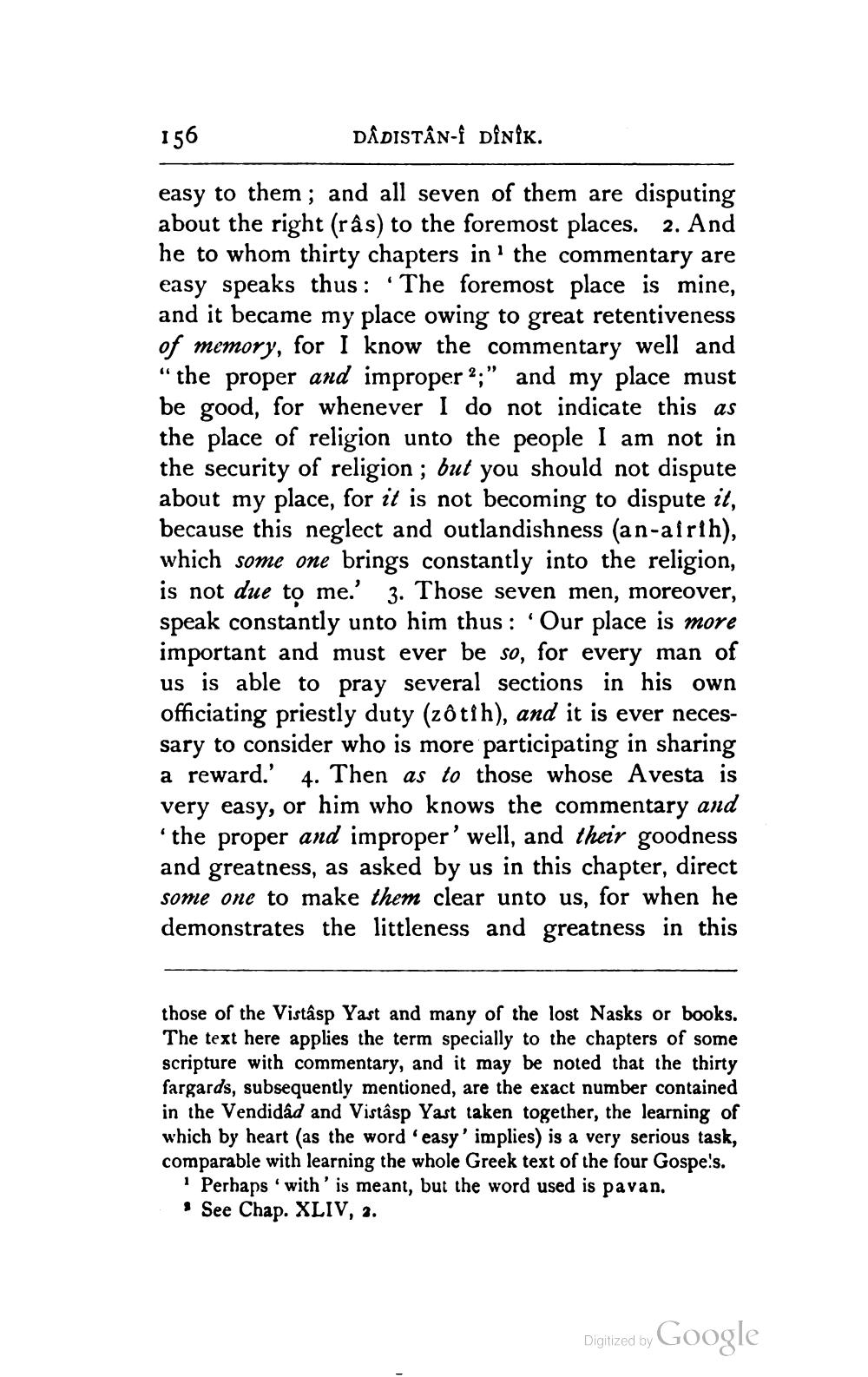________________
156
DÂDISTÂN-I DÎNÍK.
easy to them; and all seven of them are disputing about the right (râs) to the foremost places. 2. And he to whom thirty chapters in the commentary are easy speaks thus : ‘The foremost place is mine, and it became my place owing to great retentiveness of memory, for I know the commentary well and " the proper and improper 2;" and my place must be good, for whenever I do not indicate this as the place of religion unto the people I am not in the security of religion ; but you should not dispute about my place, for it is not becoming to dispute it, because this neglect and outlandishness (an-airih), which some one brings constantly into the religion, is not due to me.' 3. Those seven men, moreover, speak constantly unto him thus : 'Our place is more important and must ever be so, for every man of us is able to pray several sections in his own officiating priestly duty (zôtih), and it is ever necessary to consider who is more participating in sharing a reward. 4. Then as to those whose Avesta is very easy, or him who knows the commentary and 'the proper and improper' well, and their goodness and greatness, as asked by us in this chapter, direct some one to make them clear unto us, for when he demonstrates the littleness and greatness in this
those of the Vistâsp Yast and many of the lost Nasks or books. The text here applies the term specially to the chapters of some scripture with commentary, and it may be noted that the thirty fargards, subsequently mentioned, are the exact number contained in the Vendidad and Vistâsp Yast taken together, the learning of which by heart (as the word 'easy' implies) is a very serious task, comparable with learning the whole Greek text of the four Gospels.
· Perhaps with' is meant, but the word used is pavan. • See Chap. XLIV, 3.
Digitized by Google




